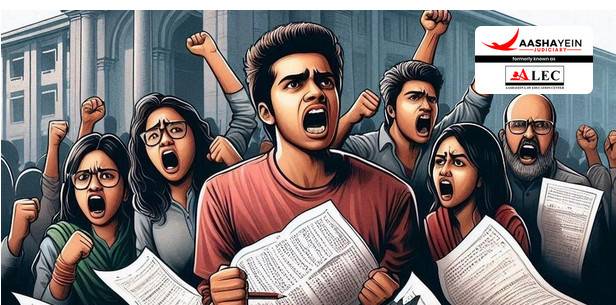On the occasion of the first Lokpal Foundation Day, Chief Justice of India (CJI) Sanjiv Khanna highlighted a stark reality, corruption is not confined to high-profile scandals but is deeply entrenched in everyday life, particularly affecting India's socially and economically disadvantaged. His remarks bring into focus the widespread impact of corruption, ranging from leaked examination papers to the unfair allocation of state resources, undermining fundamental rights and constitutional values.
What is Lokpal?
The Lokpal is provided for the establishment for the union, it is a statutory body without any constitutional status. It performs the function of an “ombudsman” and inquire into allegations of corruption against certain public functionaries and for related matters.
CJI Khanna observed that when examination papers are leaked, the consequences extend far beyond administrative failures. Such incidents shatter the dreams and aspirations of countless students, directly affecting their right to education under Article 21A of the Constitution and their ability to secure meaningful employment.
You can also read the latest judgment by visiting [Latest Judgment].
For more information, visit [Aashayein Enquiry Section]
Corruption in Resource Allocation: A Violation of Equality
Justice Khanna pointed out that corruption also manifests in the unfair distribution of state resources, often concealed under seemingly legal frameworks. Examples include:
- Below Poverty Line (BPL) cards, meant for the underprivileged, are sometimes issued to those with influence, diverting critical resources from those in genuine need.
- Allocating housing to elites at below-market prices undermines the principle of equality enshrined in Article 14 of the Constitution.
The Role of the Lokpal in Fighting Corruption
The CJI emphasized that the establishment of the Lokpal, though significant, is not a panacea for corruption. A robust mechanism for investigation and accountability is essential to combat corruption at all levels. Justice A.M. Khanwilkar (retd), the Lokpal Chairperson, reinforced this by stating that corruption erodes trust in governance, and the Lokpal Act provides a framework to investigate corruption in high offices.
India’s legal framework provides multiple avenues to address corruption, including:
1. Prevention of Corruption Act, 1988
Section 13: Criminalizes acts of public servants involving dishonest or fraudulent misuse of power.
Section 7: Penalizes the acceptance of undue advantage by public officials.
2. The Bharatiya Nyaya Sanhita,2023 (BNS)
Section 316(5): Addresses criminal breach of trust by public servants.
Section 61(2): Deals with criminal conspiracy, relevant in cases involving collusion.
3. Lokpal and Lokayuktas Act, 2013
Establishes the Lokpal to investigate allegations of corruption against public functionaries, ensuring accountability at the highest levels.
Conclusion
Corruption, as CJI Sanjiv Khanna aptly noted, diminishes public trust and strikes at the core of equality and justice. From the dreams of students disrupted by examination paper leaks to the resources diverted from the underprivileged, its impact is far-reaching. While the Lokpal Act and other legal mechanisms provide a framework to combat corruption, a robust, transparent, and accountable system is crucial to safeguard the aspirations and rights of all citizens. Combating corruption is not just a legal imperative but a moral and constitutional duty to uphold the values of fairness and justice in society.

